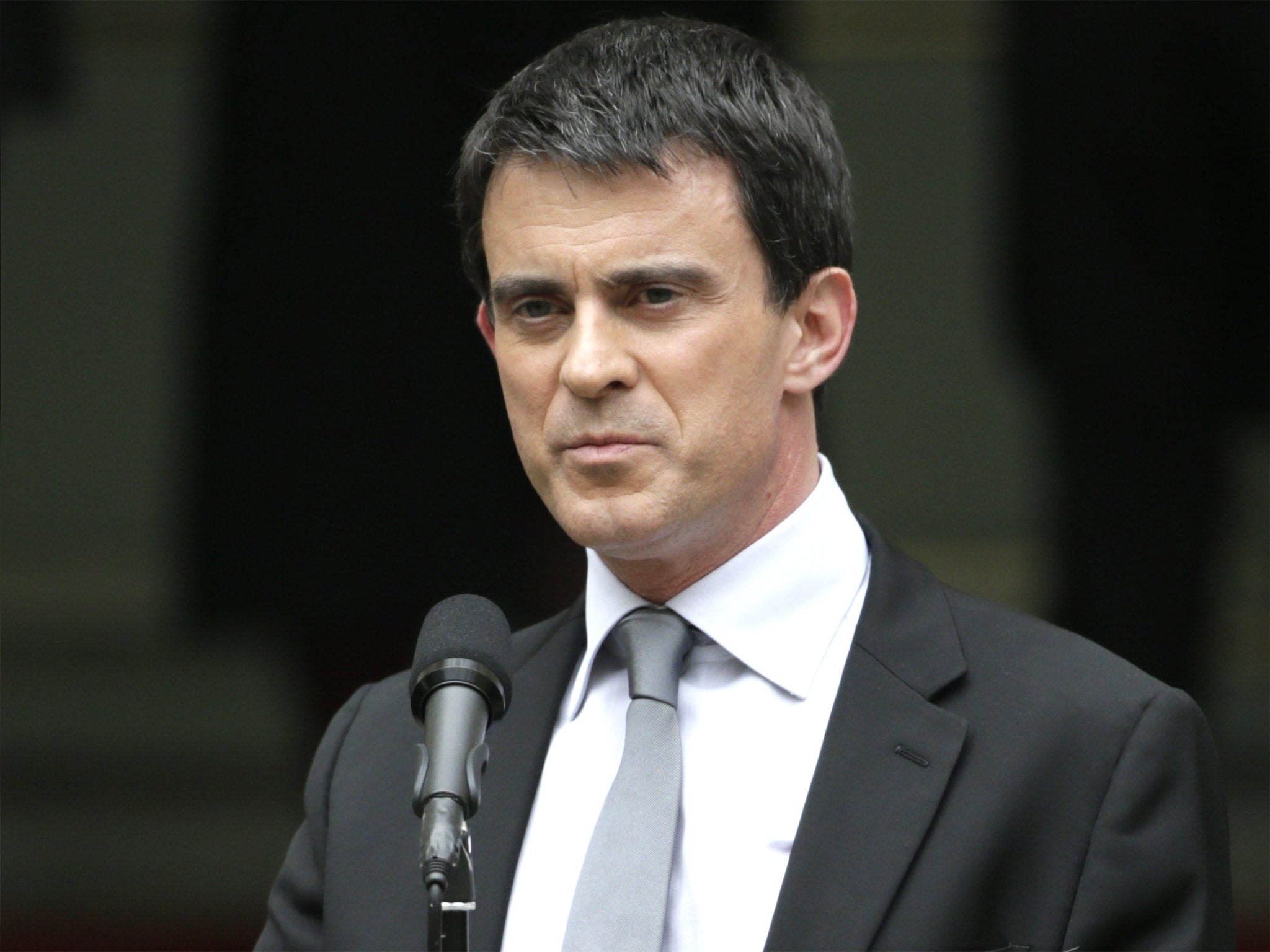Green rebellion leaves new French government with wafer-thin majority facing vote of confidence
One week in and new Prime Minister Manuel Valls is facing accusations of being hostile to ecological concerns and too far to the right on economic and social policy

France’s new Prime Minister, Manuel Valls, will lead a government with a wafer-thin majority and a potentially cacophonic mixture of left and right-leaning voices.
The Greens, who formed a coalition with the Socialists, in the previous government, have refused to serve under the acerbic, charismatic Mr Valls. They accuse him of being hostile to ecological concerns and too far to the right on economic and social policy.
As a result, the Valls government will face its first vote of confidence in the National Assembly next week with a Socialist overall majority of only one or two seats. Left-wing members are furious, and opposition members boiling with excitement, after sweeping centre-right and far-right victories in local elections last Sunday.
To try to head off a potential revolt by the left wing of the Socialists, the Valls government, partially named today, will have prominent left-wingers in two key positions. It also includes President François Hollande’s former partner, Ségolène Royal, who returns to national politics for the first time since she lost the 2007 presidential election to Nicolas Sarkozy.
The most jarring appointment appeared to be that of the interventionist left-winger Arnaud Montebourg, as economy minister. President Hollande has recently committed himself to a more business-oriented, tax-cutting economic policy and to slash €50bn (£41bn) from the state budget this year.
It will be Mr Montebourg’s job – alongside the Hollande loyalist Michel Sapin as finance minister – to try to implement this. He is more pragmatic than he sometimes appears but is best known abroad for threatening, as industry minister in November 2012, to “throw” the British-based Mittal steel company out of France and to nationalise its factories.
He has been a vocal opponent of the austerity demanded by the EU to reduce state deficits. His brief will to persuade Brussels to cut France some slack in its drive to cut its deficit to 3 per cent of GDP by the end of 2015.
In his address to the nation after the calamitous municipal elections at the weekend, President Hollande hinted that he would be asking Brussels for more leeway so that he could respond to voter anger before the European elections next month. He wants, among other things, to provide pay-roll tax breaks for the less well-off. Brussels has since responded curtly that France has already been given two concessions on the deficit-cutting deadline.
In his address, Mr Hollande said that he had asked Mr Valls to lead a “government of combat” which would be “united” and “sharply focused” on the reforms needed to generate growth and jobs. In truth, he knew that in appointing Mr Valls he threatened to split his own Socialist party and end the Socialist-Green coalition, which has governed France since May 2012.
The new government, announced after difficult negotiations between Mr Hollande and Mr Valls, sought to buy off left-wing anger by appointing Mr Montebourg and a left wing, former student leader, Benoît Hamon, as education minister.
After more than 10 hours of agonising on Monday, and ruling out all other options, President Hollande fired his Prime Minister, Jean-Marc Ayrault, and asked Mr Valls to replace him. Mr Hollande was forced to accept by advisers and other ministers that only the plain-speaking Mr Valls would offer the country a change of pace and a sense of direction.
Mr Valls is detested by many on the left of the Socialist Party. He is accused of being nakedly ambitious and having – like Mr Sarkozy – exploited his previous job as interior minister to appear tough on immigration and crime.
Mr Valls is also one of the few French Socialists to have taken the party’s holy cows by the horns. He has criticised the 35-hour working week introduced by a Socialist government in 1998. He has even called for the party to change its name, saying that “Socialism” has no meaning in a 21st century in which countries have no choice but to trade and compete across national borders.
Join our commenting forum
Join thought-provoking conversations, follow other Independent readers and see their replies
Comments
Bookmark popover
Removed from bookmarks